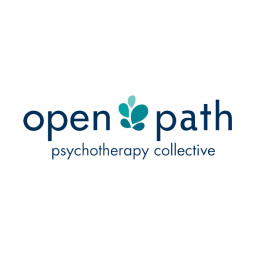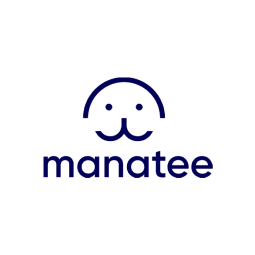Advertisement
6 High-Quality, Affordable Therapy Options For Any Budget


Therapy can help you learn about yourself and use that renewed clarity to create a life that you love. On top of giving you a deeper understanding of the world, therapy equips you with the tools you need to handle anything life may throw your way.
Despite all of the benefits, there's no doubt that beginning therapy is a journey: You'll discover and rediscover these lessons as you get to know yourself on a deeper level. There is no quick fix or magic pill—change is on the other side but only with intentional effort. Therapy is one of the top methods for managing your mental health, but over time, the investment can be costly. That's why it can be important to seek out affordable therapy options to help align you with the person you want to be—without breaking the bank.
With new platforms and mental health services created seemingly every day, finding the right therapy option can feel daunting. To ease the process, it's essential to have criteria in order to filter through the mental health site that's best for you. If you're not sure where to start, we pulled together the six best affordable therapy services based on prerequisites people commonly look for when finding a therapist.
How we picked.
Accessible
Mental health should be affordable for all, and these companies have reasonable rates, with or without insurance
Easy to use
For these therapy sites, the sign-up process is straightforward, and the user interface is simple to use. The platform makes it uncomplicated for the client to navigate therapy with ease.
Strong expertise
Each mental health provider has a background and license—from volunteer listeners to therapists and psychologists.
Positive reviews
Through scouring the internet for real customer reviews, we made sure each therapy option is highly rated by the people who actually use them. We even included personal recommendations from experts.
Quick list
Our picks for the best affordable therapy options of 2023:
Pros
- Access to over 12,000 licensed, trained, experienced, and accredited psychologists, marriage and family therapists, clinical social workers, and board licensed professional counselors
- Sliding scale subscription and financial aid available for those in need
Cons
- Doesn’t take insurance
- Many therapists and reviews note BetterHelp has a reputation of underpaying therapists
BetterHelp is the largest online therapy subscription service on the market today. The site provides multiple approaches for you to receive help; unlimited chat-based communication with your therapist, live therapy sessions, and access to educational group webinars with journaling prompts covering a wide variety of topics.
The interface is easy to use and the app encourages you to find the therapist that is best for you using highly personalized filters. During the sign-up process, BetterHelp’s computer program matches you to a therapist that best fits your personal needs and can help you achieve your goals. Not a fit? No problem. BetterHelp allows you to keep re-matching with a therapist until you find the right match.
Trial period: 7-day trial period
Price: $60-$90 per week, billed every four weeks (could be higher depending on therapist and location availability)
What customers say: 4.8 out of 5 for Apple, 4.6 out of 5 for Android
“This app has been incredibly helpful. I am pro in-office, but I find the ability to send your counselor a journal and send messages to them at any time is far more helpful. Sometimes in counseling we do not recall how we feel, whereas having a place where I can write exactly how I feel and get answers as to what is happening to me is so more beneficial than in-office. The groupinars are extremely interesting and helpful as well.”
Pros:
- Works with members ages 13 and up
- Premium membership offers unlimited messaging
- Community is available in 189 countries and 140 languages
Cons:
- Free active listeners are not licensed
- Text-based therapy, doesn't have video options
- Does not currently take insurance, available through HSA/FSA
For free and paid options, 7 Cups is an on-demand, emotional health service and online therapy provider. If you need to talk to someone and a friend or family member is unavailable to give you the support you need, you can lean on this mobile- and web-based messaging service for help. The service is anonymous, confidential, and 24/7.
To round out the experience further, 7 Cups offers various self-help tools in the form of meditation practices and relaxation techniques. Users can also seek help through interactive chat rooms, free volunteer listeners, or certified therapists depending on the option they choose.
Trial period: 3-day free trial
Price: Premium membership with trained therapists costs $150 per month
What customers say: 4.7 out of 5 for Apple, 5 out of 5 for Android
"I found this app when I was at a low point in life, but I didn't actually want to speak out loud. I am pretty introverted, but in this particular space of life I was in, I didn't really know how to articulate how I was feeling. Typing it out really helped. I was fortunate to find listeners that really cared, and were able to vent in a safe space."
Advertisement
Pros:
- Therapist guides meet with couples for a more human touch
- Premarital counseling services uses technology with Loveware sessions
- Couples receive direction and privacy when it comes to learning about each other
Cons:
- Only services couples looking for proactive therapy vs. couples going through major problems
- Doesn't take insurance
In the past, couples' therapy was traditionally sought out as an intervention when a couple was in crisis. These days, it's about taking preventive measures to strengthen the existing connection and shore up relationship skills. OURS is a modern premarital counseling service that offers a psycho-educational experience for couples who don't necessarily have anything wrong with the relationship—and want to keep it that way.
After signing up and completing a short survey, couples are paired with a relationship expert to guide them through a monthlong virtual process to proactively cover important topics like finances, communication, sex, parenting, and more. "OURS is a fun, research-based way to have a healthy relationship. Couples get direction and privacy when it comes to learning more about each other," licensed marriage therapist Elizabeth Earnshaw, LMFT, and head of relationship health of OURS, tells mbg.
Trial period: Users can trial 1 live session and 1 content session for just $50
Price: $500 for four-week session
What customers say: 100% of couples report feeling closer after OURS
"This gave us the language to talk about the things we needed to talk about. I think all couples would benefit from OURS. Even my grandparents and parents, who've been together for decades, would get a better understanding of each other and space for the relationship."
Pros:
- Allows people to search for therapists in their area
- Heavily discounted therapy costs
- Telehealth options
Cons:
- If the therapist isn't a right fit, you have to submit a form to find a new therapist
- Doesn't take insurance
Founded in 2012, Open Path Collective is a nationwide directory that connects psychotherapists to clients looking for affordable mental health services. While most therapy fees can range upward of $150 to $300 and more per session, the 501(c)(3) nonprofit believes in providing in-office and online therapy sessions at a fraction of that cost. The one-time, lifetime $59 membership fee is used to maintain the site, pay staff, and recruit new therapists to join their network.
The service is location-agnostic and services all 50 states. The extensive directory allows you to critically filter out therapists and choose one based on your needs including age, race, specialties, modalities, and treatment orientations so you can find the right fit. "I recommend Open Path Collective because it is a site meant to connect people with affordable therapy without the use of insurance," says licensed psychotherapist Gayle Weill, LCSW.
Trial period: No trial period
Price: $30–$60 per therapy session, going up to $80 for family and couples sessions
What customers say: 5 out of 5 in Facebook reviews
"I would not be able to afford therapy on my own, being that normal therapy sessions run $150–$200, especially since I was previously out of work for months. Dealing with mental health issues is already stressful enough, and can feel insurmountable if you cannot afford access to services intended to help. Thank you to you and your team for providing this great service for those who are uninsured or underinsured."
Advertisement
Pros:
- Offers child therapy or parent coaching sessions
- Manatee offers sliding scale fees $75–$125 for a therapy session
- Offers insurance reimbursement, FSA/HSA, and compatible with some company mental health stipends
Cons:
- Only available in California, Colorado, Florida, Idaho, New Jersey, and Pennsylvania with plans to expand more
- Does not take Medicaid or Medicare
Manatee is a 100% virtual mental health app designed to support families with evidence-based, research-backed skills for happier, healthier relationships. The platform offers a rich library for your family to use: a Chatbot with interactive exercises rooted in CBT, daily journaling prompts for children to jot down their feelings, check-ins to evaluate progress, six weeks of self-guided lessons, and a goal/reward system to track successes.
To begin, families book a free consultation and then schedule an intake session to create a six-week care plan accompanied by weekly coaching sessions from the Manatee app. The platform has a clean interface and comes advertisement-free, so your family can focus on the resources alone. Manatee's services are comprehensive and tailored for ages 0 to 18 to work with everything relating to relationships, grief and moodiness, fears and self-esteem, and tough behaviors.
Trial period: Free 20- to 30-minute consult to ensure it's a good fit
Price: Family and parent intake session for 6-week plan $175, group sessions $99 per month, therapy session $135 with discounted packages available
What customers say: 90% of Manatee families see clinical improvements after 6 weeks
4.9 out of 5 for Apple, 4.5 out of 5 for Android
"Therapy made a big difference for us. I realized I need to be the one in charge, so my daughter feels safe again. Over the past year, my daughter has been pulling away, spending lots of time alone in her room, but since we started with Manatee, she's way more social and enjoys her time with our family a lot more. Manatee in 3 words? Simple, effective, easy."
Pros:
- Some insurance and/or large employers may foot the bill
- Services children (10 and up) and adults
- Appointments can be scheduled any time during the week
- Doctor, psychiatrists, or psychologists available for medication support
Cons:
- Expensive, plus consultations are not free
- Subscription plans are not available
- You could be seen in as little as 5 minutes, or the wait could take up to a few days depending on the doctor you're seeking
If you're looking to manage your mental or physical health in a cinch, Doctor on Demand is here for urgent needs anytime and anywhere. After downloading the app and filling out your health history, you can connect on a video call to see your chosen board-certified professional and quickly receive the help you need. You'll be able to access physical health services that can help you stave off illnesses such as allergies, colds, and the flu.
Founded by Dr. Phil in 2013, the site was created for immediate care visits. They provide qualified psychologists, therapists, and psychiatrists in-network, but it may take a while to schedule an appointment from the online portal.
Trial period: No free trials available
Price: Board-certified clinician $75, psychologists $129 for a 25-minute consultation and $179 for a 50-minute consultation, psychiatrist $229 for a initial 45-minute consultation and $129 for 15 minute follow-ups
What customers say: 4.9 out of 5 for Apple, 4.8 out of 5 for Android
"This app is so helpful! I was able to get connected with a wonderful medical provider in less than 5 minutes from the comfort of my own home without having to go to a physical location where I could possibly be exposed to more things. I am so impressed with my experience. The intake paperwork was easy and quick to fill out too. My provider was very knowledgeable, friendly, and my appointment was efficient. I will definitely recommend this app."
Advertisement
Alternative mental health options.
Face-to-face and online teletherapy options are readily used today, but there are other substitutes you can lean on depending on your particular needs:
Peer support groups
Sometimes, you may not need individualized attention and you're more interested in sharing space with others who understand your experiences. If you're looking for empathetic support with people who can relate to you, peer support groups are a safe place to do just that. "Group therapy is a powerful modality for certain specific issues as it has a huge normalizing effect and helps an individual feel a sense of community," explains licensed psychotherapist Ling Lam, Ph.D., MFT.
Grief support groups
Grief is one of the most isolating, yet universal, experiences we can all go through. Loss of any kind can be overwhelming to process, but grief support groups provide a space for you to recover and heal during this challenging time. It's inevitable that it will be painful, but being able to reinterpret the hurt, face mortality, and let go with grace are important skills to healthily move forward.
Psychedelic-assisted therapy
As mental health treatments continue to improve and make advancements, psychedelics are becoming promising therapeutic alternatives to treat conditions like anxiety, addiction, and PTSD. In 2018, the FDA approved psilocybin mushrooms as a "breakthrough therapy" to manage treatment-resistant depression. In 2022, researchers from John Hopkins, New York University, and Yale University received a grant to create an evidence-based protocol for psychedelic therapy.
FAQ
Is in-person therapy better than online therapy?
"Psychotherapy is optimal in a high emotional bandwidth medium," Lam says. "In-person has the highest emotional bandwidth as you can see the whole person—verbal, nonverbal, facial expression, body posture, etc., followed by video, phone, and then text." With that being said, the caveat is that it does depend on your needs. If you’re too busy to fit in a standing face-to-face therapy, it will be difficult to see progress if you can’t bring your full self to the session. Online therapy may make more sense if you're looking for therapeutic help on your timetable and what makes sense with your schedule.
What is a normal price to pay for therapy?
Therapy services can vary depending on the therapist's training, specialties, and insurance plan coverage. As seen in the affordable therapy options listed above, prices differ between individual sessions vs. packages, one-time sessions vs. subscriptions, and the geographical location.
How often should you go to therapy?
There is no right or wrong way to do therapy. Lam notes that therapy traditionally takes place once a week, but it's really up to you and your therapist to decide what you need. "I invite clients to trust themselves and what they need and have a collaborative conversation with their therapist to jointly determine the right cadence for them."
What happens if you don’t find the right fit right away?
If you don't energetically match with your therapist immediately, that's OK and par for the course. Lam recommends scheduling out a few sessions with a therapist and checking in with yourself to see if you feel safe and seen during your sessions. This will directly contribute to the quality of the therapeutic relationship. Take your time—if you don't feel understood by your therapist, it's OK to look for another one.
Can you quit therapy and take a break?
"Therapy has a beginning, middle, and end, just like any other human experiences. There are many different therapeutic modalities, and I do not believe a client needs to do continuous therapy forever," Lam advises. "Trust yourself and have a collaborative conversation with your therapist about your goals and progress toward your goals."
Is there ever a "right" time for therapy?
You can seek therapy when you're going through a tough period or even if you just want dedicated time to talk about things that matter to you. What's important is that you participate in the therapeutic relationship and feel comfortable learning about yourself in the process.
The takeaway.
Affordable therapy is possible and attainable, if you know what you're looking for. That said, while finding a great deal is important, it's also essential you work with a provider and platform that suits your emotional needs without sacrificing quality of care. If you're considering therapy and want to dig into the nuances of the types of therapeutic approaches out there, here's our full guide to help you choose a modality that's right for you.























